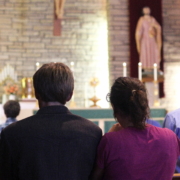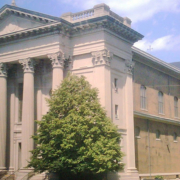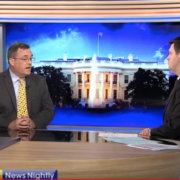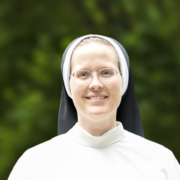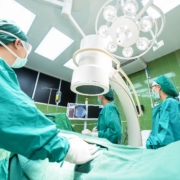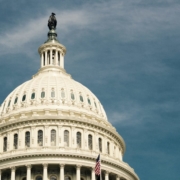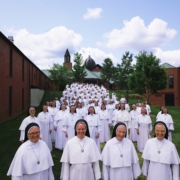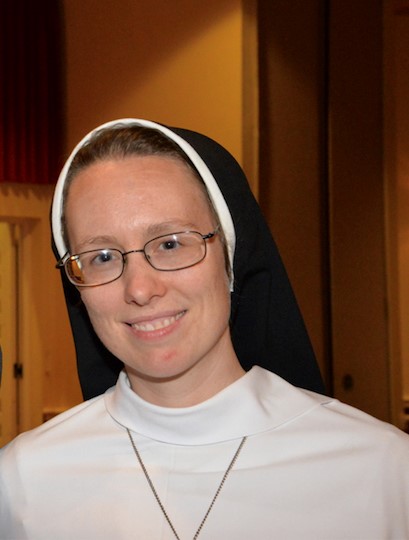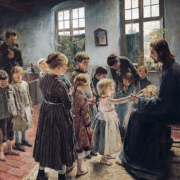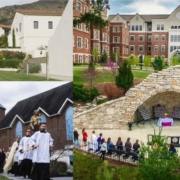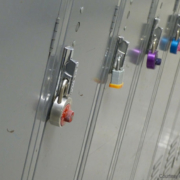Holy Eucharist Adored at Faithful Catholic Colleges
For one student, visiting prospective colleges left her feeling “uncertain and worried.” Brigid Ambuul of California toured five secular universities, but she wasn’t convinced by their sole focus on “worldly success.”
Then she visited a faithful Catholic college and ducked into the perpetual Adoration chapel to say a prayer in front of the Blessed Sacrament. It was there that she knew her college decision was made.
“It’s funny how things start to turn around, once you put God in the center of a situation,” she explains.
On this campus, “God wasn’t just an afterthought,” but rather He permeated all aspects of student life from the classroom to the chapel. The college seemed especially committed to spiritual formation, and it gave her a “newfound sense of hope and excitement” for her future.
As a result, Brigid is heading to Franciscan University of Steubenville, Ohio, this fall to begin her studies.
A recent Pew Research study found that only 26% of U.S. Catholics under the age of 40 believe that Jesus Christ is truly present in the most Holy Eucharist. Clearly there has been a breakdown in forming young people in the Faith. But if we are looking for hope for the future, we need look no further than America’s most faithful Catholic colleges.
“Though it is tragic and deeply troubling that so many young people… do not believe or do not know that the Eucharist is Jesus, there is great hope in seeing young people who do believe this doctrine with their whole being,” says Austin Schneider, director of campus ministry at John Paul the Great Catholic University in California. The college offers Eucharistic Adoration every weekday during the school year.
“These fervent young Catholics not only inspire me, but I believe they have the capacity to draw many others into a deeper, intimate knowledge of Jesus Christ,” he continues.
Since the 1960s, there has been a decline in fidelity at many Catholic colleges. In response, the Church urges every college to “give a practical demonstration of its faith in its daily activity, with important moments of reflection and of prayer.” Students and employees should be “encouraged to participate in the sacraments, especially the Eucharist” (Ex corde Ecclesiae §39).
Dr. George Harne, president of Magdalen College of the Liberal Arts in New Hampshire, takes the directive seriously. He promotes the “centrality of the Eucharist” on campus in a variety of ways, including the college’s beautiful and reverent celebration of the liturgies of Holy Week and Easter.
Another president, Dr. Bill Thierfelder of Belmont Abbey College in North Carolina, built an Adoration chapel on campus as one of his first initiatives at the helm.
Students participate in Eucharistic processions at the University of Dallas in Texas, and Adoration is included in outdoor camping trips at Wyoming Catholic College. These Eucharistic activities attend to students’ spiritual formation as well as their intellectual education.
In Virginia, Christendom College is devoting its time and resources to building a magnificent new Christ the King Chapel, which will have double the seating capacity of the current chapel.
The Pew Research study found that most Catholics who attend Mass weekly do believe that the Eucharist is the Body and Blood of Jesus Christ. Catholic families should know, then, that students at faithful Catholic colleges are more likely to attend Mass regularly. The colleges recommended in The Newman Guide provide strong faith communities that support daily Masses and well-attended weekly Masses, and most have plentiful opportunities for Eucharistic Adoration — some even offer it perpetually.
A faithful Catholic education reinforces the fundamentals of the faith and forms students for sainthood as well as earthly success, with Christ at the center. The spiritual difficulties facing young Catholics today are enormous, but there are places where college students can love and adore Jesus Christ in the Eucharist while preparing for life and the challenges ahead.
This article first appeared at The National Catholic Register.

